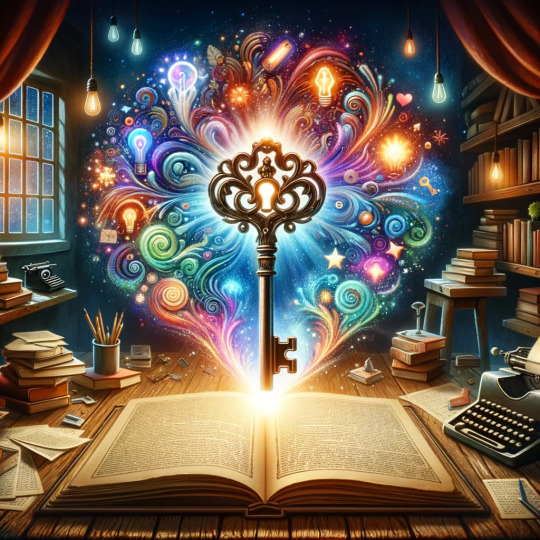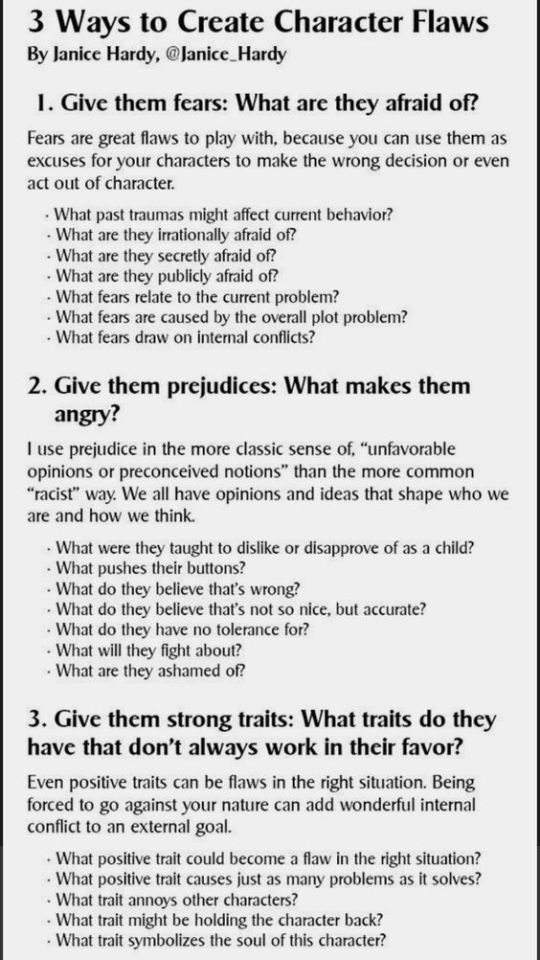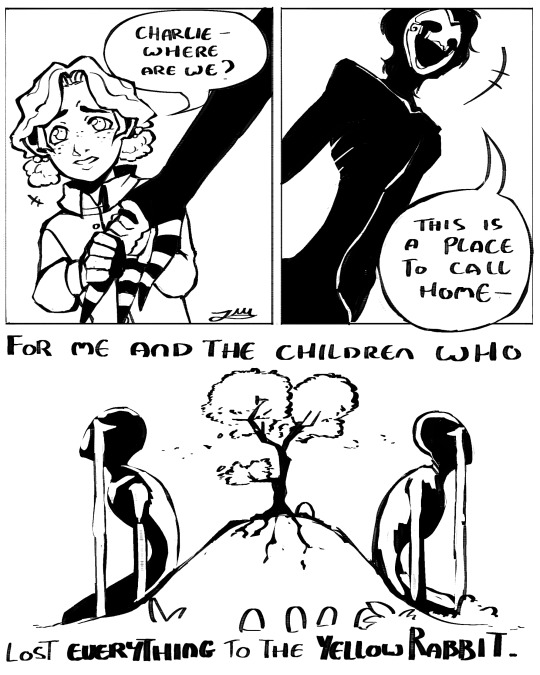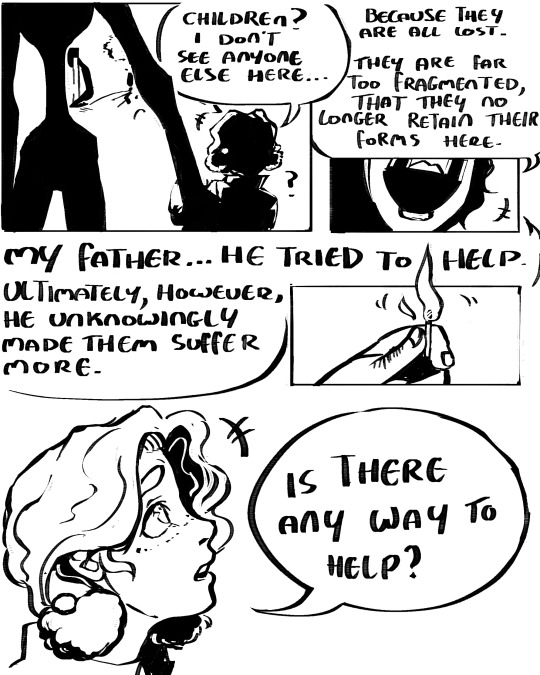#writing development
Text
🌹 Where in the world does your OC feel most at home? Is there any reason why? If it’s not the place they were born, where were they born? Is there a certain somebody that makes them feel at home where ever they may be? What does home mean to them?
Xiaowen: Home is a difficult question for her. While there are some deep-rooted memories associated with the house she grew up, it didn’t quite ever feel like home. She was eager to leave for the SF, and even as a young girl, she knew she wouldn’t really “go back”. While she does return, too much has changed, and after Xiulan’s death the only thing she feels is keeping her there is that past, which is why she leaves and only returns sporadically, eventually moving away permanently.
Funbari Hill was her true home for a while. This is a memory she shares mostly with Horohoro since they “took care” of the inn while Yoh and the rest were in Izumo. The place is linked to her friends in her mind, even if 2 out of the 6 didn’t spend a lot of time there while young. After the 6 years of wandering after the SF, returning to the inn is the first time in a long time where she feels at ease.
Soon after, she moves in with Lyserg at his townhouse in London—there’s a period of adjustment for both of them, where she’s figuring out how to live in this new place (before she arrived, he planned out her new room to the last detail and got super nervous about if she’d like it or would be comfortable). The two big changes she does is clearing the garden and keeping it tidy for Morphine (Lyserg was too busy and didn’t really know how to garden) and setting up a family shrine for his parents, grandparents, and Xiulan. She was actually pretty nervous about that change since it wasn’t his tradition, but she explained that she had to set up something for Xiulan and if she only put up her portrait, Xiulan’s spirit would believe this was her house now and “get a big head” about it. Lyserg is grateful for that and all the changes around the house that show that she’s part of his life now, and it’s a turning point for her to finally feel like she has a home
Zinc: It’s his parent’s house and the rest of the village. It’s not very big and the whole village is a bit rustic, but they’ve got what they need and in my hc it still keeps contact with the outside world in certain ways. The house itself is up in a higher part of the village and overlooks the center; it’s not very big but he grew up there and once he turned 14 he got an extension at the top which became his own house. He had everything he needed to live there but he still mostly spent time at his parents’ floor, and the deal went that if he ever got married, his part would be expanded to be a proper family home. He used to daydream about that a lot, but he knew that he wouldn’t get to have it. Even when he fantasized about moving away to a big city and living there, he knew he could always come back. Once he comes back during The Super Star, he lives in Joco’s 1-bedroom apartment and his bed is nominally the couch in the living room. At the worst times when he’s dealing with the anger and pain of the village’s destruction he tells himself his home extends to the edge of the rug. Joco does move him to “their” bed pretty quickly though, even if Zinc feels like they’re not in a committed relationship to warrant sharing a bed all the time. But it helps a lot in helping him feel more at ease, and they get into a routine that feels a lot like what he’d wanted about moving to a city and living on his own when he was younger.
🍂 Does your OC enjoy hugs? What do they do as a show of affection for: their friends, their family, their significant other(s) or for strangers? Over all what are they like with recieving affection from others?
Xiaowen: When she’s young, hugs are strange to her and she tends to freeze up and not reciprocate, but luckily for her most of her friends aren’t very huggy people, except Joco, who’s the likeliest to randomly hug her and she doesn’t understand why. She didn’t get much hugs or physical affection when growing up. So she is touch-starved to high hell.
She shows affection to friends mainly by being there and listening to what they have to say. She shows a lot of interest in them and once she’s comfortable around someone likes to seek them out and just talk. She’s quick to offer a smile, and if they want to do something specific, she’ll go along with them even if she’s not personally interested in the activity.
A big part of the reason she’s good with kids is because she’s a lot more comfortable with hugging and roughhousing with them than with other adults.
Once she gets together with Lyserg, he does tend to show more physical affection and closeness, although not often in public, but the reaching out for a hand, or offering a hug rubs off on her and she slowly starts showing it to others. She likes his hands so she’ll give him a gentleman’s kiss every so often. She’s strong enough that her hugs are really comforting, also because when she does do it she’s very genuine about it. Even before he realized his crush on her, he had this inkling that he’d want to be in her arms, even if he couldn’t quite understand that was what it was. He is now the little spoon.
Zinc: He’s ok with hugs, either casual or serious, though if it’s just an acquaintance or friend, he isn’t often the one offering the hug. That’s mainly for family and his partner. If it’s a casual situation he’ll give side-hugs and shoulder squeezes. He gives really good, strong hugs though. He’s all about acts of service when showing affection, with cooking for people being really important to him, but he’ll do you favors with little questioning and can take a bit of a caretaker role if he thinks it’ll help someone he cares about out. He also gets very protective and is always in a friend’s corner if needed.
He is a lot more touchy-feely with his partners, with hugs from behind and forehead kisses and sprawling on the couch together. This is mostly with Joco, since with Namari he was a clumsy teenager, but they did have their moments of affection. He likes playing guitar for others.
🌻 What little things do they notice about people or the world around them that make them happy? What tiny little treasures do they find in the normal every day that makes the world seem a little brighter for them?
Xiaowen: She likes mornings and the quiet they bring, usually in the context of a house where she’s the only one awake for the moment. She appreciates warm breezes and the speckled shade of trees. Watching rain pour from the roof. At the communal house there were wind chimes hanging from the tree, and she loved that sound. She likes openness in people, and she notices pretty quickly when people are trying, regardless of what they’re trying for or if they’re succeeding.
Zinc: He appreciates passion in people, and people who aren’t ashamed of being themselves. He likes good food, even if he has to make it himself, and sharing it with others. It can be something as simple as a snack to share. Music is important to him and just listening to what he likes can help a lot in improving his day. He also likes long car rides, whether he’s driving or not. His favourite time of the day is actually going to bed and things are slower, less hectic—especially when he’s with Joco.
1 note
·
View note
Text
The constant rolling disaster that is Overwatch's game development aside, what really perplexes me about how Blizzard is handling the broader franchise is their continual insistence that a canon narrative exists in spite of their equally continual refusal to tell anyone what it is.
Like, okay, the events of the games aren't canon. Fair enough: the games are multiplayer-only, and you can't account for player actions.
Oh, and the animated short films aren't canon either – they're properly understood as in-universe propaganda, not depictions of actual events. That's a little high concept for you guys, but fine.
But surely the comics are canon, right? Well, no; some of the comics (we're not telling you which ones) were canon at one point, but the writing team has decided to go in a different direction.
My dudes, what is left? The weird Source Filmmaker porn? Is that canon? Well, apparently it's at least as canon as anything else!
#gaming#video games#overwatch#blizzard#game development#writing#canon#metatextual wankery#pornography mention#swearing#recording a four-hour video essay interrogating the canonicity of widowmaker's massive hog
23K notes
·
View notes
Text
Unlocking Your Creative Writing Potential: A Comprehensive Guide
Are you an aspiring writer looking to make the most of your creative writing potential? Do you find yourself needing direction when it comes to breathing life into your characters and crafting a captivating story line? Unlocking Your Creative Writing Potential: A Comprehensive Guide will provide actionable steps for even the newest writers. Whether you are just starting out or feeling stuck in a…

View On WordPress
#author advice#Author Growth#Author Improvement#author resources#Creative Expression#Creative Inspiration#Creative Writing#Creative Writing Guide#Creative Writing Strategies#Unlocking Creativity#writer&039;s craft#Writer&039;s Journey#Writing Creativity#Writing Development#Writing Excellence#Writing Mastery#Writing Potential#writing skills#writing techniques#writing tips
0 notes
Text
Good Traits Gone Bad
Exploring good traits gone bad in a novel can add depth and complexity to your characters. Here are a few examples of good traits that can take a negative turn:
1. Empathy turning into manipulation: A character with a strong sense of empathy may use it to manipulate others' emotions and gain an advantage.
2. Confidence becoming arrogance: Excessive confidence can lead to arrogance, where a character belittles others and dismisses their opinions.
3. Ambition turning into obsession: A character's ambition can transform into an unhealthy obsession, causing them to prioritize success at any cost, including sacrificing relationships and moral values.
4. Loyalty becoming blind devotion: Initially loyal, a character may become blindly devoted to a cause or person, disregarding their own well-being and critical thinking.
5. Courage turning into recklessness: A character's courage can morph into reckless behavior, endangering themselves and others due to an overestimation of their abilities.
6. Determination becoming stubbornness: Excessive determination can lead to stubbornness, where a character refuses to consider alternative perspectives or change their course of action, even when it's detrimental.
7. Optimism becoming naivety: Unwavering optimism can transform into naivety, causing a character to overlook dangers or be easily deceived.
8. Protectiveness turning into possessiveness: A character's protective nature can evolve into possessiveness, where they become overly controlling and jealous in relationships.
9. Altruism becoming self-neglect: A character's selflessness may lead to neglecting their own needs and well-being, to the point of self-sacrifice and burnout.
10. Honesty becoming brutal bluntness: A character's commitment to honesty can turn into brutal bluntness, hurting others with harsh and tactless remarks.
These examples demonstrate how even admirable traits can have negative consequences when taken to extremes or used improperly. By exploring the complexities of these traits, you can create compelling and multi-dimensional characters in your novel.
Happy writing!
#character traits#writing#writing tips#character development#writer on tumblr#writerscommunity#writer tumblr#writblr#writing advice#oc character#writing help#creative writing
51K notes
·
View notes
Text
Writing practice/character development idea!
To know the characters you’re writing more, go through the cast and tell us what kind of pizza they’d order if they were put in charge of it. Say only one pizza, size, type, brand, and topping can vary. You can also show how they share or perceive relationships by splitting topping or removing any.
0 notes
Text
Writing Tips Master Post
Character writing/development:
Character Arcs
Making Character Profiles
Character Development
Comic Relief Arc
Internal Conflict
Creating Distinct Characters
Suicidal Urges/Martyr Complex
Creating Likeable Characters
Writing Strong Female Characters
Writing POC Characters
Character Voices
Plot devices/development:
Intrigue in Storytelling
Enemies to Lovers
Alternatives to Killing Characters
Worldbuilding
Misdirection
Consider Before Killing Characters
Foreshadowing
Narrative:
Emphasising the Stakes
Avoid Info-Dumping
Writing Without Dialogue
1st vs. 2nd vs. 3rd Perspective
Fight Scenes (More)
Transitions
Pacing
Dialogue Tips
Book writing:
Connected vs. Stand-Alone Series
A & B Stories
Writer resources:
Writing YouTube Channels, Podcasts, & Blogs
Outlining/Writing/Editing Software
Miscellaneous:
Overcoming Writer's Block
1000 Follower Special
Writing Fantasy
Character Ask Game
#masterlist#masterpost#writeblr#writing#writing tips#writing advice#writing help#writing resources#author resources#writer resources#creative writing#character writing#character development#plot development#narrative#book writing#writers block#writer stuff#writer things#deception-united
4K notes
·
View notes
Text
Want quick tips to add instant chemistry to the relationships of your characters??
(🥳With examples🥳)
First of all, I want to say that you can also use most of them for platonic/ non-romantic relationships, so feel free to use this tips however you think they might work better in your story. So, without further adue, let's get to the tips!!!
Make your characters LISTEN to each other. Like, if A tells B they're not a morning person, B could make some coffee for A or lower the volume of their alarm.
This might sound quite obvious, but show that you characters care for each other. It might be as simple as one of them giving the other a glass of water when they feel a little dizzy, but it works wonders!
Make your characters physically close. When you are emotionally close to someone, you tend to be physically close too. But here is the thing. Make your characters react like it's second nature: "how would I not hug B when I haven't seen them in days?" or "Of course I'm gonna take A's hand when I feel insecure".
They don't have to be constantly thinking about each other, but when they do, MAKE IT MATTER!! For example, character A is out shopping, and they see B's favorite cookies. B didn't have a good day, and A knows that. But A also knows B is gonna fucking love the cookies, so they buy some.
Let them believe and trust each other. Also applies if one of them is a little distrustful: let your characters rely on one another, even if at the start they aren't as comfortable doing it. For a distrustful character, letting the other one help with chores might be a HUGE thing.
Other tips for writers: previous | next
#writeblr#writing#writer#writers#writers of tumblr#writers on tumblr#writerscommunity#original character#character development#character dynamics#main character#chemistry between your characters#writing tips#tips for writers#character tips#tips#creative writing
3K notes
·
View notes
Text

#writing community#writer things#novel writing#writerslife#writers on tumblr#writerscommunity#writing#writers#writers and readers#writing tips#character development#character design#character concept#character sheet
5K notes
·
View notes
Text
Obsessed with how buggy kept his apprenticeship with Roger a secret. You'd think a guy who calls himself flashy would be as vocal as possible about his captain, the adventures they had, his connection to an emperor. But no, he never talked about it, and it's not just because he's a coward.
Buggy stayed in the same sea where his captain was killed for over a decade, the weakest sea in the world. He sought a lesser treasure no one cared about, terrorized small towns that couldn't fight back, didn't stay in contact with his former crew. These aren't the actions of a man seeking fame and fortune. If anything, he was actively sweeping himself under the rug of history.
Buggy wasn't biding his time in east blue, he was hiding. And now we know he was hiding because he didn't believe he deserved to chase his real dreams when Shanks existed, who had so much potential. So he stayed stagnant and comfortable in his little corner of the world, pretending he was satisfied, until a rubber boy jolted him out of his complacency, wearing a familiar straw hat...
#one piece#buggy the clown#shuggy#shanks#i am tipsy and in my feelings bruh... the clown... they gave him so much character development.. my god...#op spoilers#write up
3K notes
·
View notes
Text
Feelings Wheel

This is the feelings wheel by Geoffrey Roberts, shown to me by my therapist. My initial thought was, "what amazing synonyms to use for diverse emotional vocabulary!"
More than that, this wheel is great for understanding your characters inner motivations and reactions to situations. For example, if a character constantly feels helpless, then their overarching characteristics will be that they are fearful.
Characters who are less emotionally aware may use words and act in the inner most circle. Those much more aware of their emotions may describe themselves or express and use words from the outer most circle.
Hopefully you guys find this as helpful as I did! Let me know down in the comments.
Happy Writing!
#creative writing#character development#emotional growth#emotional intelligence#novel writing#story writing#tumblr writers#writing community#writer things#writing advice#writing tips#writing resources
8K notes
·
View notes
Text
A Writer's Guide to Character Development
I don’t know about you guys, but I can only answer “what’s your character’s favorite flavor of ice cream” so many times before I realize those lists are not going to help me actually write the character.
So, instead, I like to drabble practice. Answer these ten key questions about your character (answer in character). Then, after you know them a little better, write ten scenes (NOT part of your planned story) with the ten prompts below. Set it in your world, but it can be whenever you want—pre-story, or post-story, or mid-story. You could even write two scenes for one prompt, contrasting where your character starts the story and where they end up, or write one in first person and then write it again in third.
Just has to cover events that are NOT plot points. The point of the exercise is to come up with scenes you can toss out as soon as you finish them. You might end up using some of the lines or scenes you come up with, but for now you’re just playing around.
QUESTIONS
What does your character tell everyone is their greatest fear? What is it actually? Is it the same? Why or why not?
What is their greatest strength and greatest weakness?
Name the most important people to this character. All of them. Family and close friends and lovers.
Does your character have enemies? Who and why?
What is your character’s favorite holiday and why?
How does your character like to present himself/herself? How do they dress? How do they act? Are they friendly or standoffish? Do they like to make a scene, or are they a wallflower?
What is their love language? How do they express it, and how do they best receive it?
What is their highest virtue? What is something that peers would praise about your character? What do they value most in other people?
Are they messy or neat? Why or why not?
If your character could change one thing about their life, what would it be and why? And, conversely, if they could only save one thing from their life, what would it be?
PROMPTS
Your character has had a bad day. What happened?
Your character’s loved one is sick. What do they do?
It’s your character’s birthday.
Someone is hiding something from your character. How do they uncover what it is?
Your character has just heard the news. A character they loved is dead. Describe the rest of their day.
Your character is on their own for dinner.
Your character has the day to himself/herself. No responsibilities, nothing. What do they do?
In the middle of the night, your character hears a noise in the house.
Your character knows they will die at midnight. What is their last day like?
Your character suddenly develops amnesia. Their loved ones try to jog your character’s memories by taking them to familiar locations and reminiscing.
#writing help#character development#writing tips#writing advice#the last one is tricky!#happy writing!
2K notes
·
View notes
Text
I love you messy artstyle i love you visible brush strokes I love you textures and rough edges I love you imperfections I love you roughness and colour blobs I love you scratchy sketches and bold stylisation and dirt and imperfections I love you ugly and raw emotion!!!!! ❤️
#i talk sometimes#art talk#i made a tweet like this on twatter ages ago but i've been feeling this a lot lately#also this is the start of me writing more on this blog and not only using it as art because who cares!! i don't!!#I wanna translate raw emotion into colors and shapes. I wanna know where to ignore all details and where to go ham you feel me?#i used to dream about developing a style like for MtG where it looked like a masterful oil painting that oozes realism and details#and i've realised the last two years or so that I would actually hate that for me. I know I wouldn't enjoy doing it. For myself.#it's that pipeline from wanting to be the perfect realistic wotc artist to accepting that I will never be that#instead i wanna learn how to stylise better and get a good brush economy going yknow. I wanna be bolder.#i doubt i'll ever be as incredible as all these MtG artists no matter what anyone says. but it's ok!! i don't have to be!!!#i just luv art man!!
3K notes
·
View notes
Text




#A taste of whats to come for my AU comic.... the same one with mask bot don't worry#I've committed to the mask bot series now lmao#Anyways this is MUCH further in the story bc I am impatient and wanted to draw my other concept for the small series in a different light#now with more developments.#fnaf#fnaf au#my fnaf au art#the puppet#the puppet fnaf#the marionette#charlie emily#cassie fnaf#cassie#fnaf security breach#fnaf ruin#the blob#the blob fnaf#the tangle#my art#oh yeah ignore the writing error if you see it I just realised I made a mistake JKHDSSJSK
2K notes
·
View notes
Text
Some tips for using a few words to describe voices:
1. Tone Words: Use tone words to convey the emotional quality of a voice. For example, you can describe a voice as "melodic," "soothing," "sharp," "gentle," or "commanding" to give readers a sense of the tone.
2. Pitch and Range: Mention the pitch and range of the voice. Is it "deep," "high-pitched," "raspy," or "full-bodied"? This can provide insight into the character's age, gender, or emotional state.
3. Accent and Diction: Describe the character's accent or diction briefly to give a sense of their background or cultural influences. For instance, "British-accented," "Southern drawl," or "formal."
4. Volume: Mention the volume of the voice, whether it's "whispering," "booming," "murmuring," or "hushed."
5. Quality: Use terms like "velvet," "silken," "gravelly," "honeyed," or "crisp" to convey the texture or quality of the voice.
6. Rate of Speech: Describe how fast or slow the character speaks, using words like "rapid," "slurred," "measured," or "rambling."
7. Mood or Emotion: Indicate the mood or emotion carried by the voice. For example, a "quivering" voice may convey fear or anxiety, while a "warm" voice may express comfort and reassurance.
8. Resonance: Describe the resonance of the voice, such as "echoing," "nasal," "booming," or "tinny."
9. Timbre: Mention the timbre of the voice, using words like "rich," "thin," "clear," or "smoky."
10. Cadence: Highlight the rhythm or cadence of speech with descriptors like "staccato," "lilting," "rhythmic," or "halting."
11. Intonation: Convey the character's intonation by saying their voice is "sarcastic," "apologetic," "confident," or "questioning."
12. Vocal Characteristics: If applicable, mention unique vocal characteristics, like a "lisp," "stutter," "drawl," or "accented 'r'."
#writing#writer on tumblr#writerscommunity#writing tips#character development#writer tumblr#writblr#writing advice#oc character#writing help
21K notes
·
View notes
Text
Get to Know Your Character
Here are some questions to consider for character development:
What parts of their childhood trigger them?
How do they treat themselves when they're feeling sad?
What parts of themselves do they tend to hide?
How do they punish themselves when they make mistakes?
Who are they loyal to? Why?
Who do they avoid? Why?
What emotions or situations do they try to avoid? Why?
What angers them?
What are their insecurities?
What are their emotional triggers?
How do they feel about love?
What are their fears?
What is their relationship with their family like?
What kind of people do they tend to gravitate towards?
What do they like/dislike about themselves?
Happy writing ❤
#writeblr#writing#writing tips#writing help#writing resources#creative writing#character development#oc development#ask game#deception-united
3K notes
·
View notes
Text
Want simple tips to heavily improve your skills with character voice??
(📝Note: character voice is the way you convey your character's personality though their pov or dialogue when you write. No two characters speak the same📝)
I speak from experience when I say character voice is hard to get right. Characters, like people, have lots of layers that affect the way they see the world around them and how they interact with other characters. That's why character voice is so important in stories, and why if you write it in a compelling and effective way it will hook people into your story. I hope you learn something new in this post!!
When writing character voice, there's a list of things that you should take into account:
Where are they from? Their past and what they've lived plays a huge part in character voice. Maybe your character grew by the ocean, and so they compare things from the present to the beach, the rocks or the sea itself. You will rarely read about a sailor that is an expert in pants and compares scents to flowers. They might, instead, talk about how a house smells like the wet wood of a ship.
Think about how their personality shapes their language. If they are insecure, they might end most of their sentences with "isn't it?" or "right?" and ask a lot of questions, whereas if you have a confident character, you might find them saying things like "we should do this" or "that will be fun" instead.
What their "lense" is. This is more of an ethic aspect of the character. What have they learn it's okay, and what do they find uncomfortable? Would they find it gross if their friend left laundry on the floor?
Give them special traits (both for dialogue and narration). Maybe character A quotes a lot when they narrate and uses long paragraphs, or maybe B speaks about their past a lot and uses popular sayings. Personally, one character of mine has the tendency to repeat himself when he speaks, as in "yeah, yeah, I'll do it" or "no, no, no. Never" because he is really enthusiastic, and it fits really well with his character.
Pay attention to how they would talk about themselves. Maybe your character doesn't like people to know they're sad because it makes them feel vulnerable, so they will just say they feel annoyed or don't want to talk in that moment. This also means that they will not tell the reader something they are not comfortable saying in the first place.
How is their education? Education is also very important in this context. Did they went to university and have a rich vocabulary and structured sentences, or where they rised in a little farm far from town? You can also play with both a bit: maybe your character did go to university, but maybe they also came from a low income family, and characteristic of both things merge when they talk. Example: long, structured, sentences but a simple and sight forward vocabulary.
That's all for now and happy writing!!
Other tips for writers: previous | next
#writeblr#writing#writer#writers#writers of tumblr#writers on tumblr#writerscommunity#creative writing#character development#current wip#tips for writers#writing tips#tips#main character#original character#character dynamics#oc#ocs#writing advice
2K notes
·
View notes